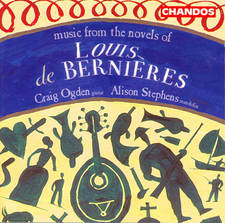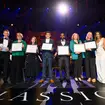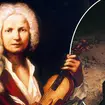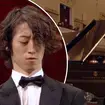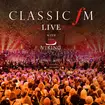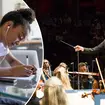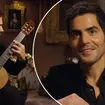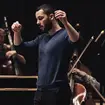The Full Works Concert - Tuesday 26 August, 8pm
Litolff’s virtuosic Concerto Sinfonique No.4 and Tchaikovsky’s magnificent Symphony No.4 are among the highlights in tonight's Concert.
Tonight's concert kicks off with music from John Stanley - most famous in his lifetime as an organist. His three volumes of organ voluntaries (including the tune featured here) are his most popular legacy. So, although we know this piece as the Trumpet Voluntary, it wasn’t really initially intended to be played on a trumpet at all.
Henry Litolff, a half-Scottish, half-Alsatian pianist, left audiences spellbound with his magical performances from the age of 14. In order that he might continue to enchant concert-goers across Europe, he wrote himself a series of symphonies with a solo piano part. They were not quite concertos — and they weren't quite symphonies either. Instead, they were pieces that were specifically designed to make him sound great when he played them. The Concerto Sinfonique No.4 in D minor is just a joy of a work and is said to have inspired Liszt. So much so, in fact, that he dedicated his own piano concerto to Litolff.
Luigi Boccherini admired Haydn greatly and was strongly influenced by Haydn's style. This influence was so obvious that music lovers of the day dubbed Boccherini 'Haydn's wife'! He was extraordinarily prolific - writing some 91 string quartets, 137 quintets, as well as trios, keyboard quintets, sextets, sonatas and 30 symphonies. These suffer in comparison with Haydn's and Mozart's but they are often quite inventive. Tonight we hear the String Quintet in E major, played by the Vanbrugh Quartet.
Tchaikovsky, pictured, composed his Fourth Symphony between 1877 and 1878 and dedicated it to his patroness and 'best friend' Nadezhda von Meck. Following his catastrophic marriage to former student Antonina Miliukova, lasting a mere two months, Tchaikovsky made a start on his fourth symphony. After emerging from a profound period of writer's block, struggling with his sexuality and battling with a heavy bout of depression, it's perhaps unsurprising that the music is urgent, supercharged and violent at points. Even the opening bars of the first movement are intended to represent a metaphor for Fate, or, as poor old Tchaikovsky put it: "the fatal power which prevents one from attaining the goal of happiness". Between the moments of anguish and melancholy, though, Tchaikovsky proves he knows how to write a great tune - even the plaintive oboe melody at the beginning of the second movement swells with a poignancy and optimism, helped along by lush strings and booming brass. The Finale, complete with frenzied plucking from the strings and rushing scales bursting through the texture, is certainly a highlight. The doom-laden Fate theme comes back once more.
John Stanley: Trumpet Voluntary Opus 6 No.5
Trumpet: Maurice Andre
Organ: Jane Parker-Smith
Henry Litolff: Concerto Sinfonique No.4 in D minor Opus 102
Piano: Peter Donohoe
Andrew Litton conducts the Bournemouth Symphony Orchestra
Luigi Boccherini: String Quintet in E major Opus 13 No.5
Vanbrugh Quartet
Peter Ilich Tchaikovsky: Symphony No.4 in F minor Opus 36
Daniele Gatti conducts the Royal Philharmonic Orchestra
